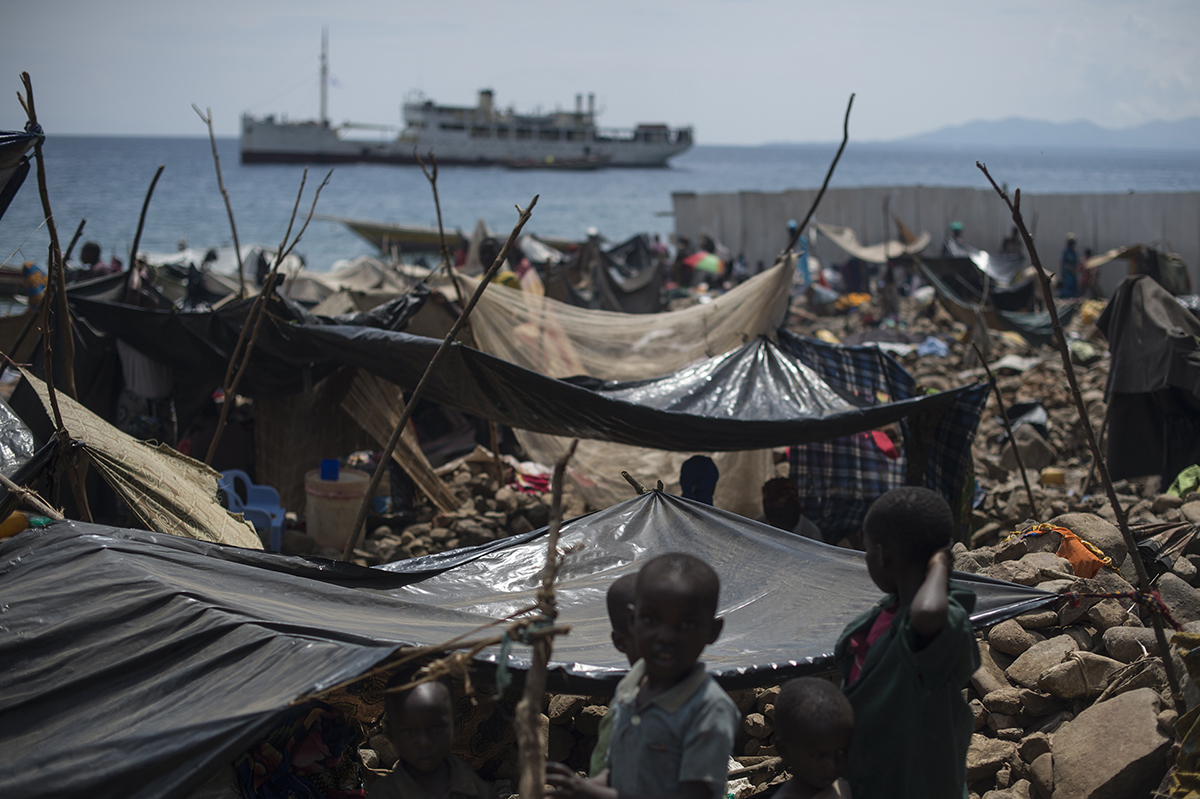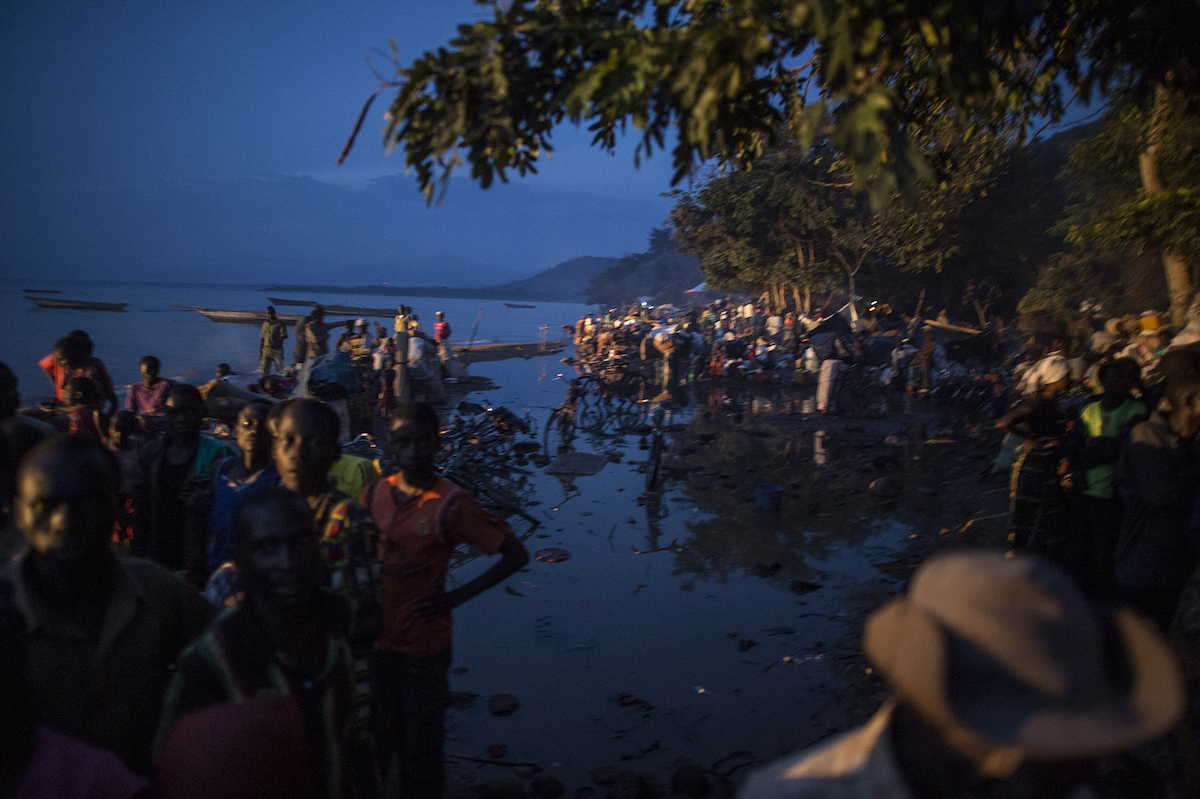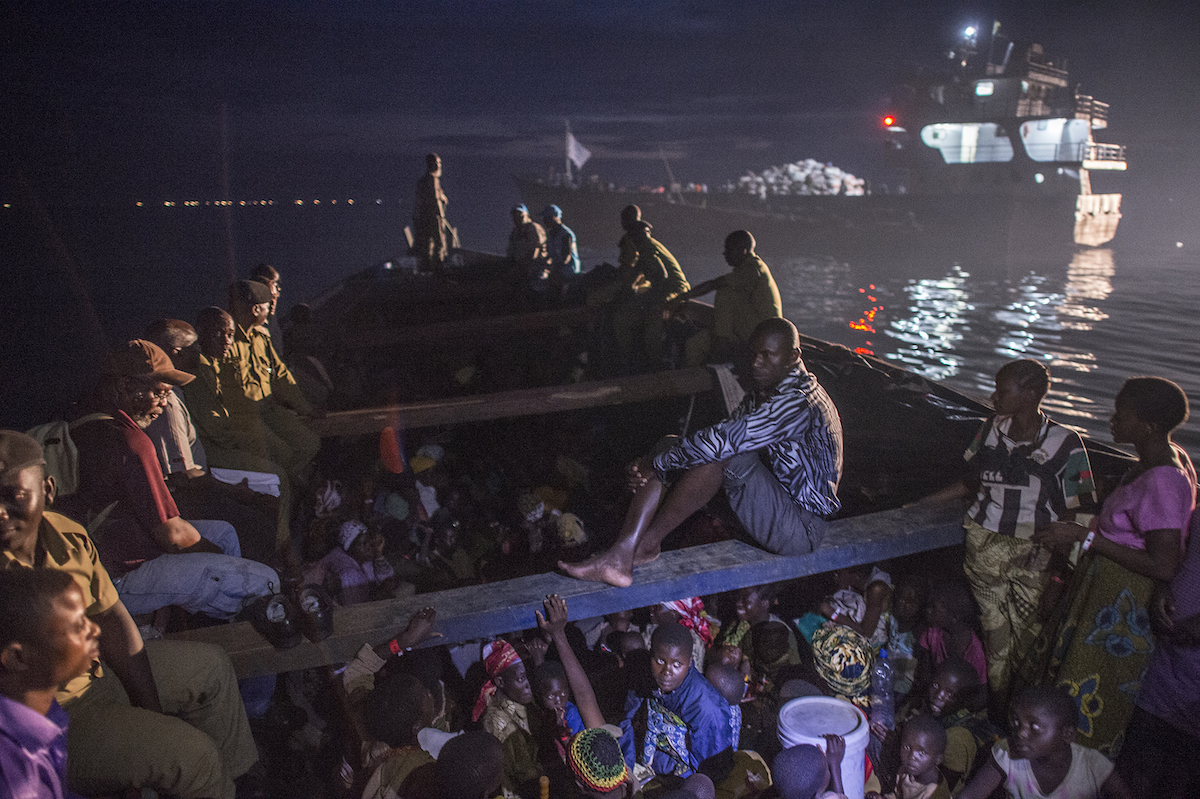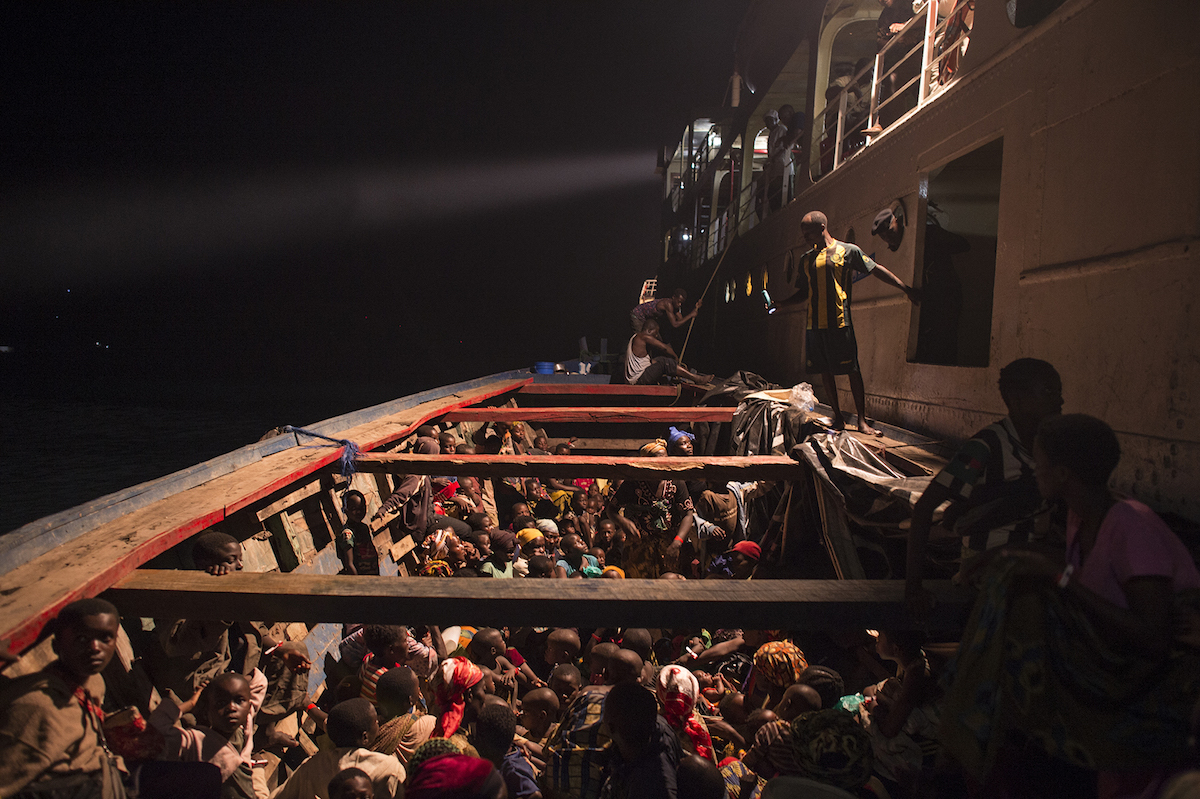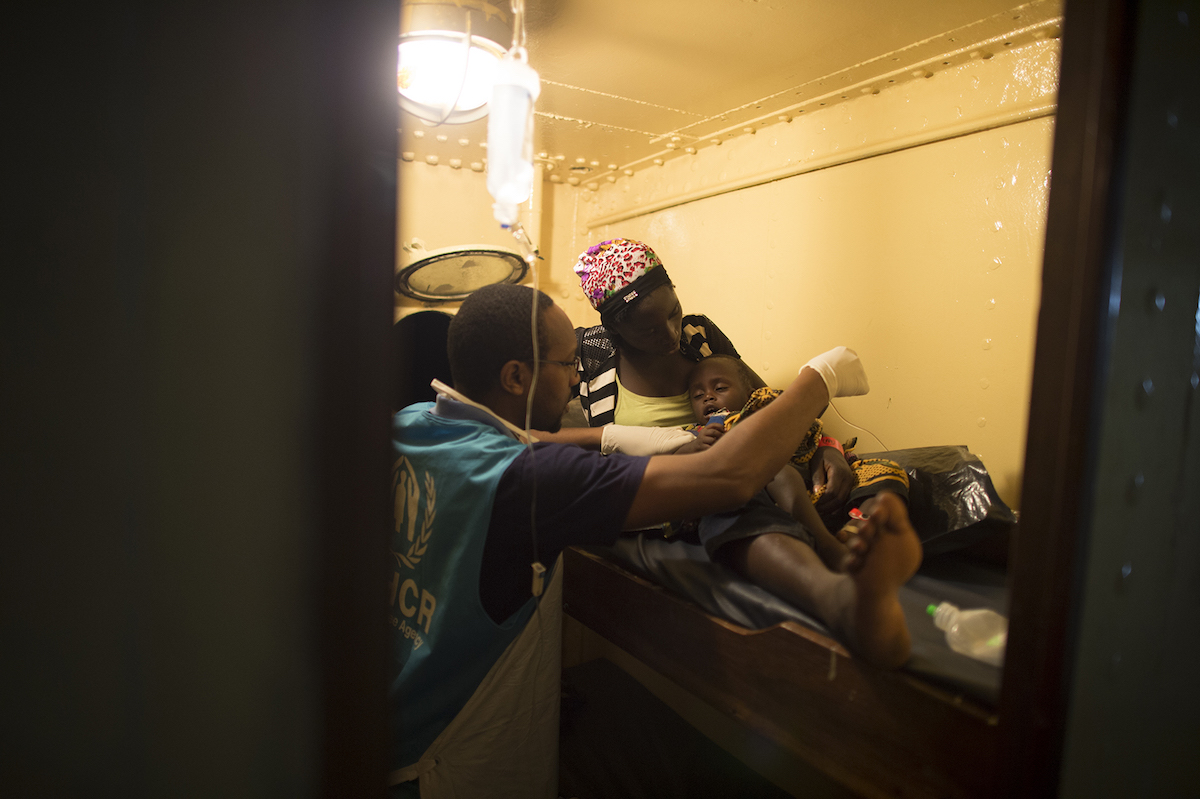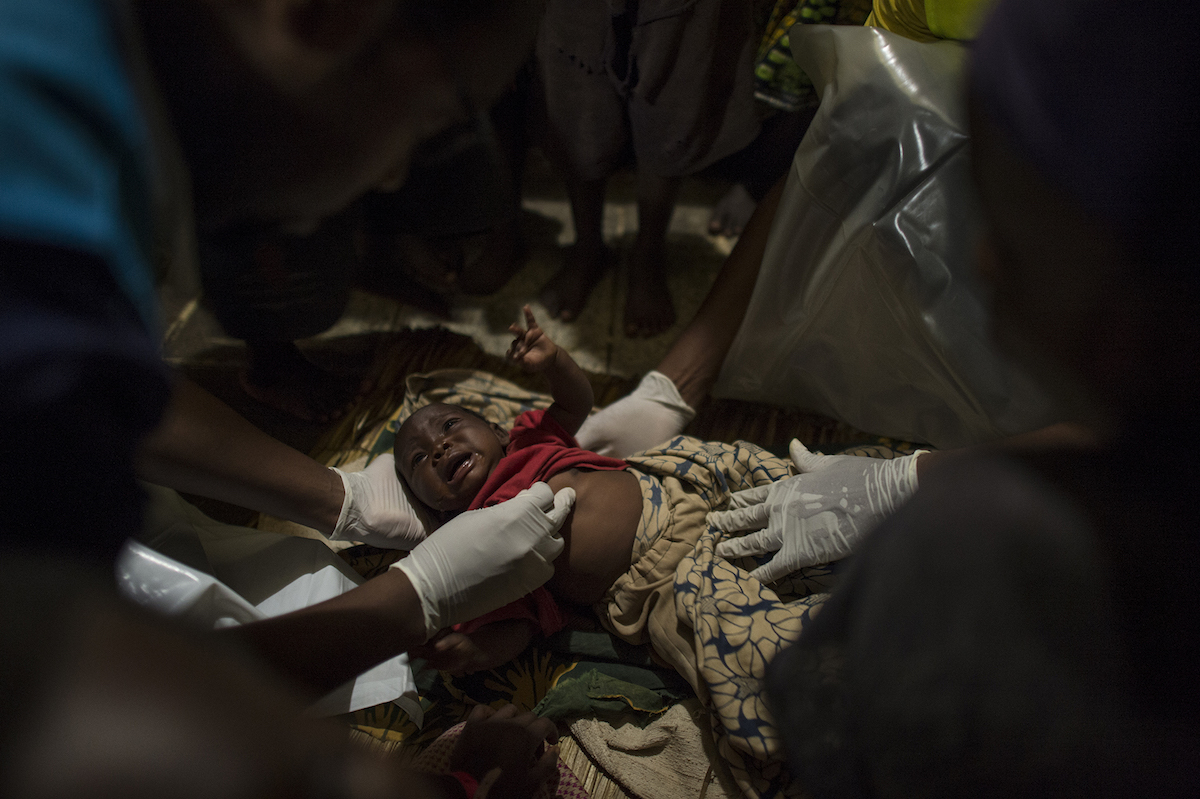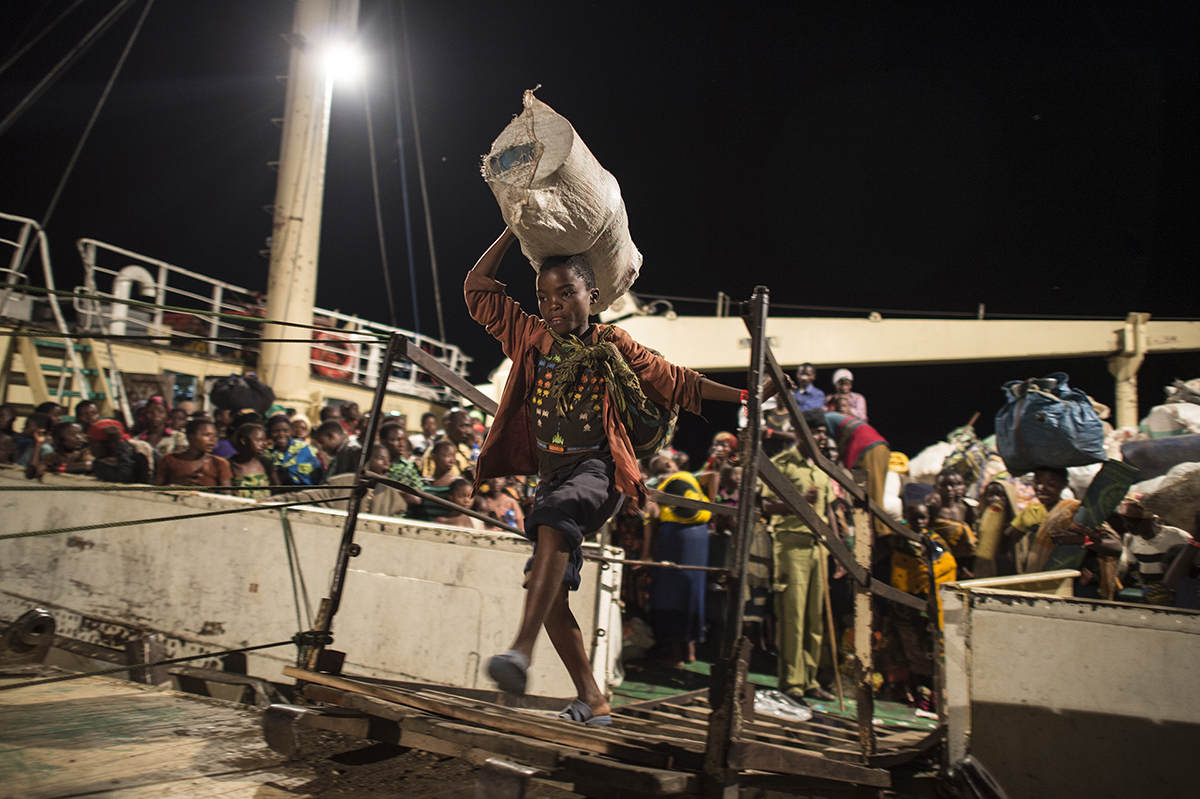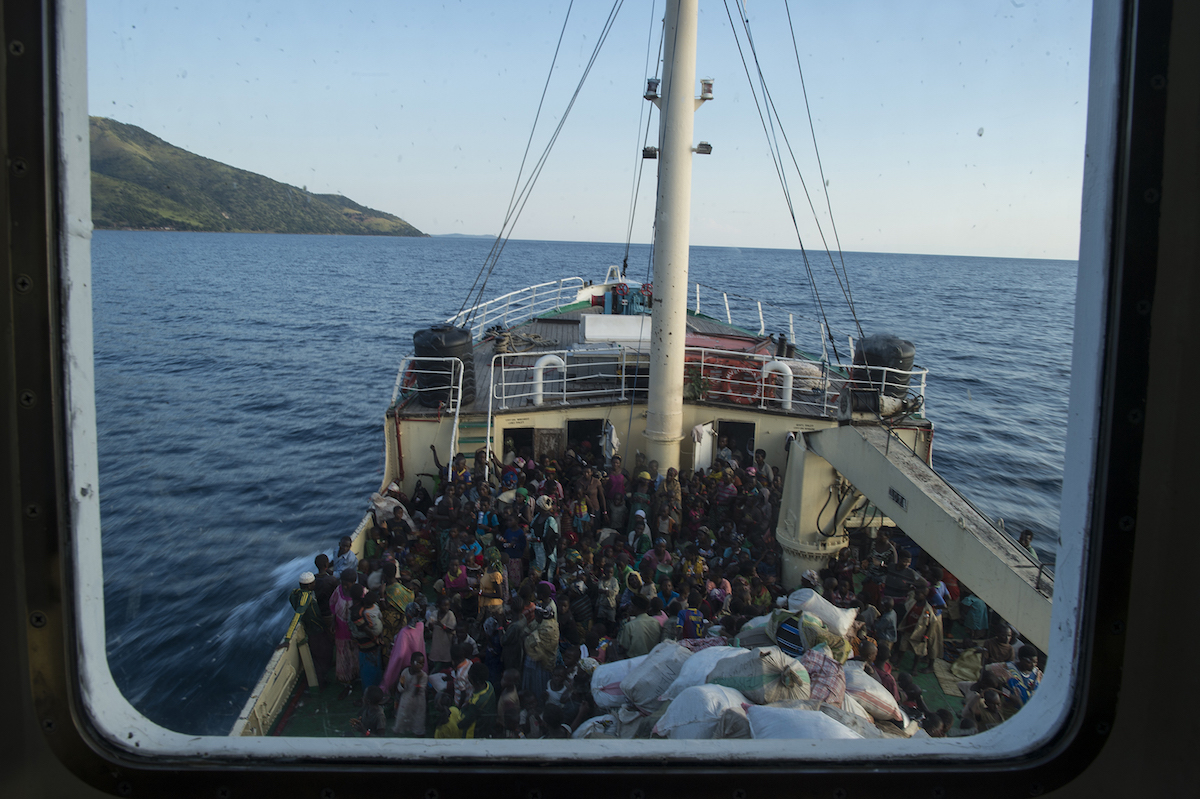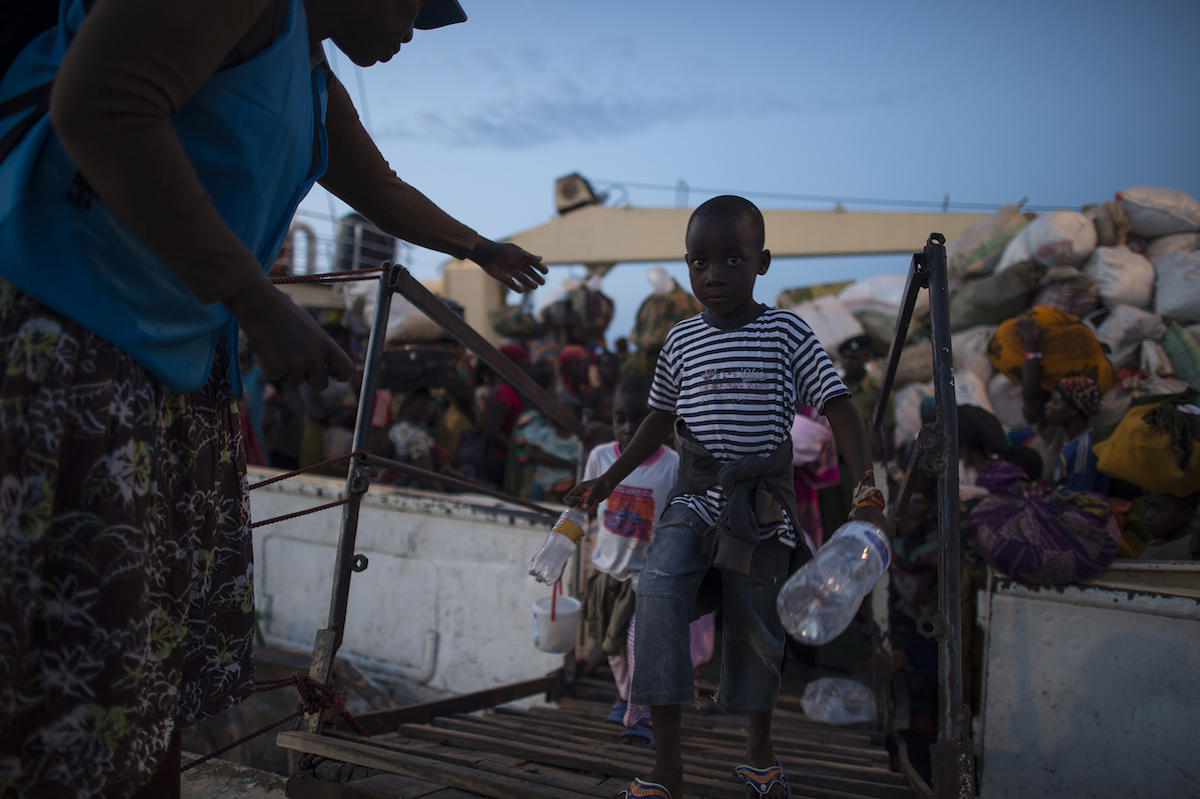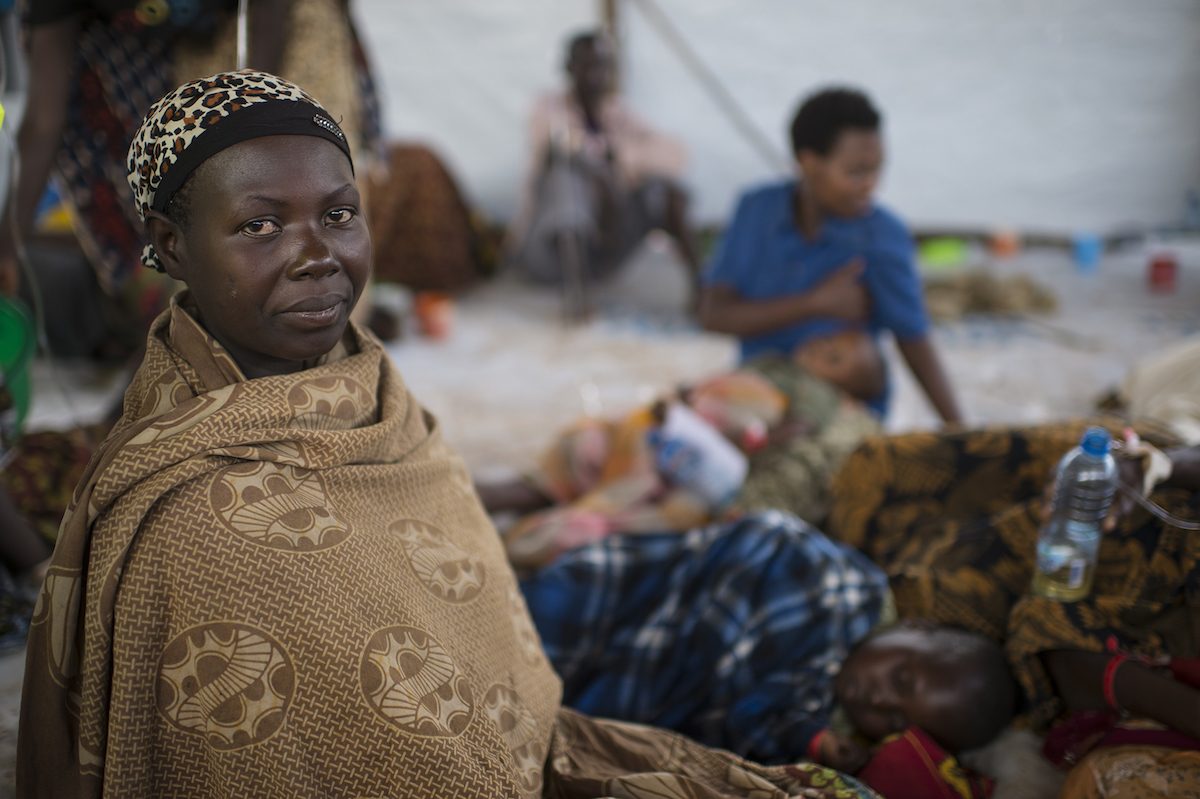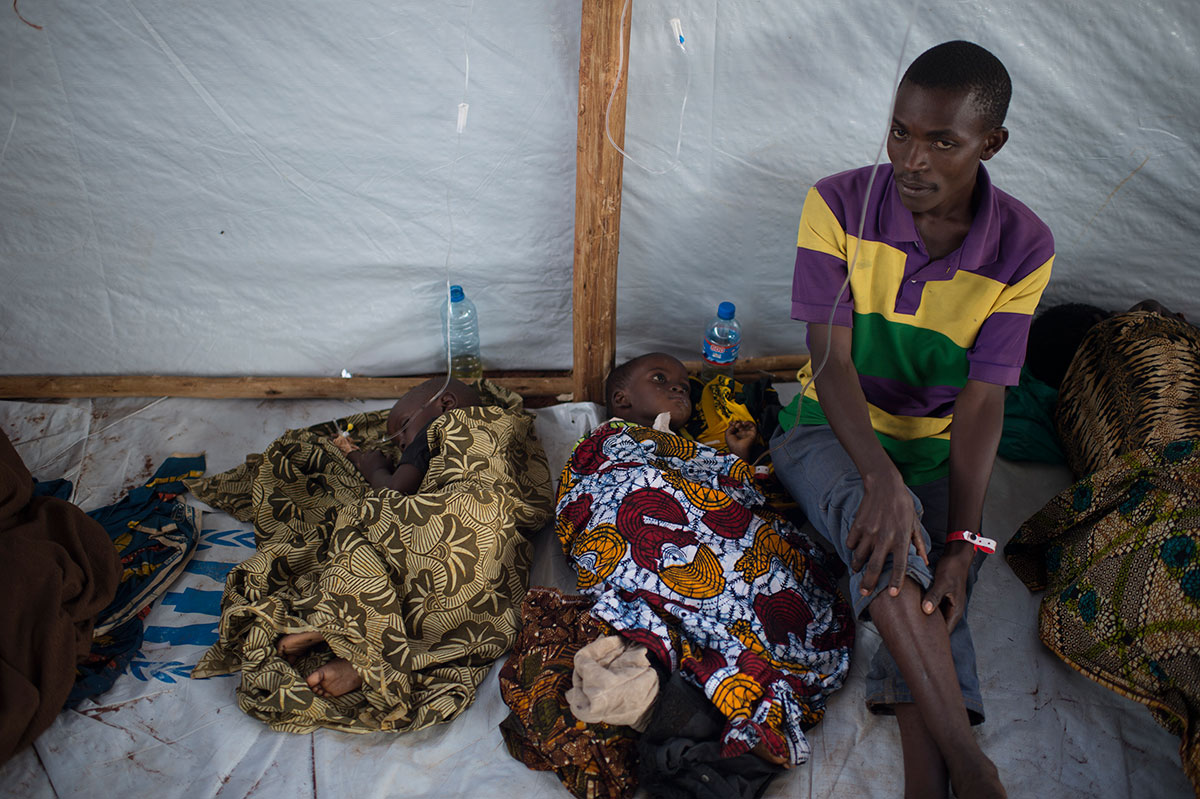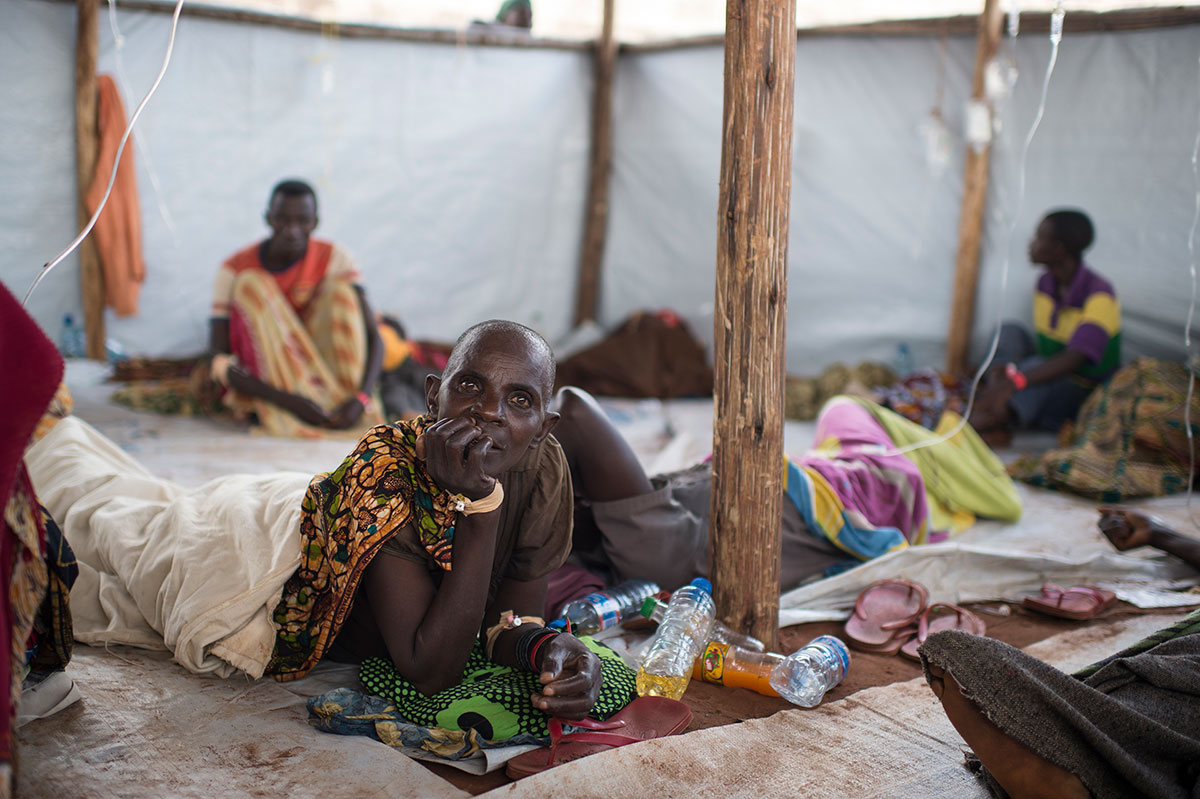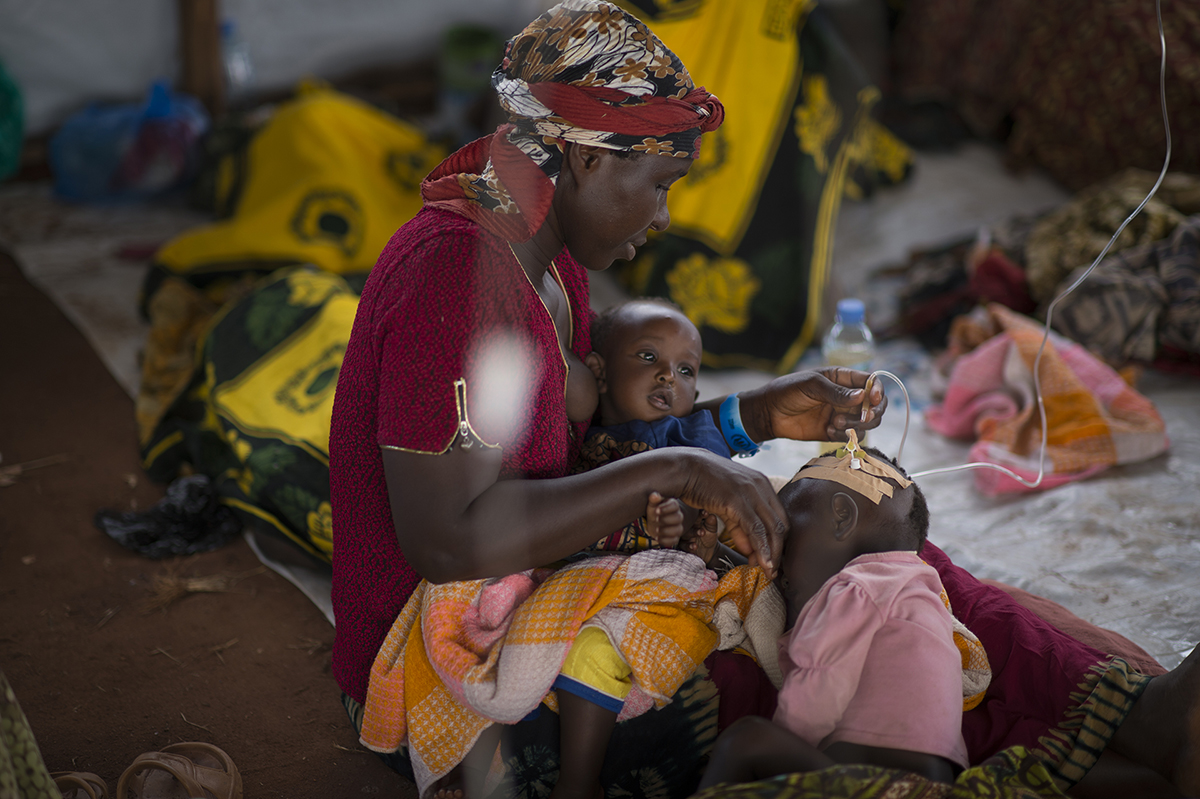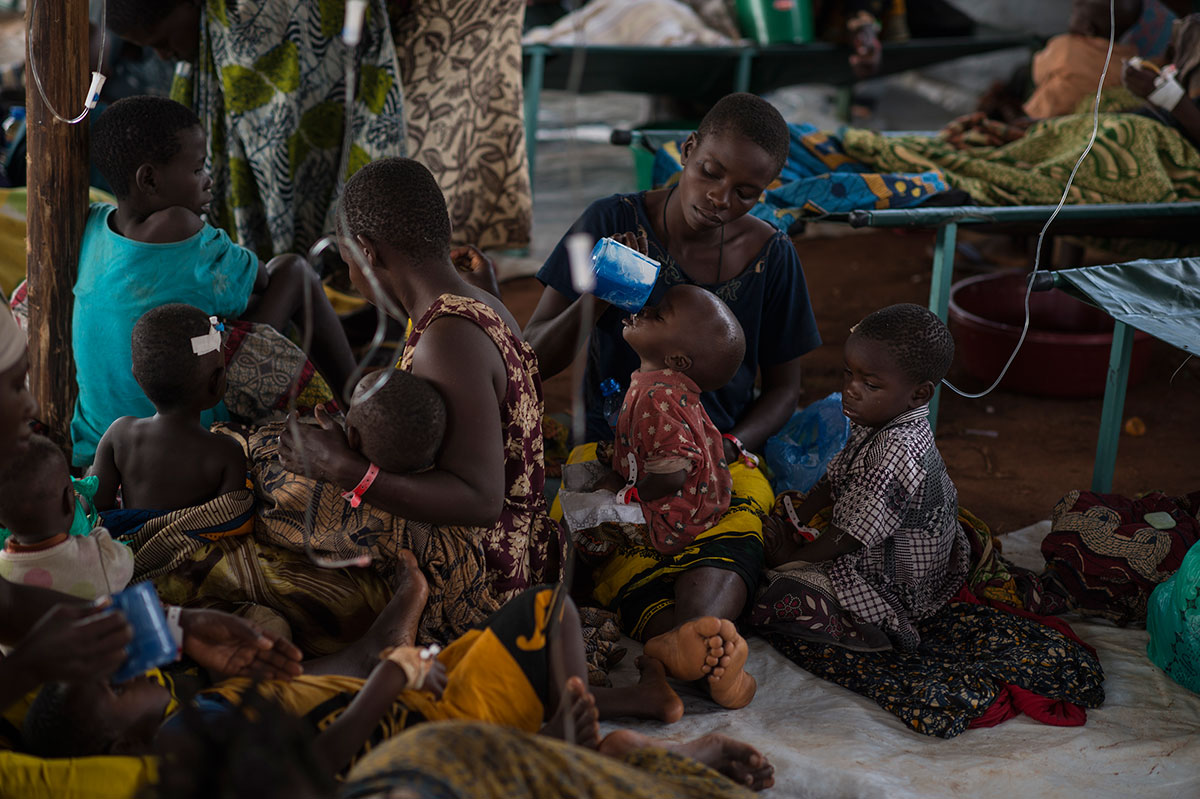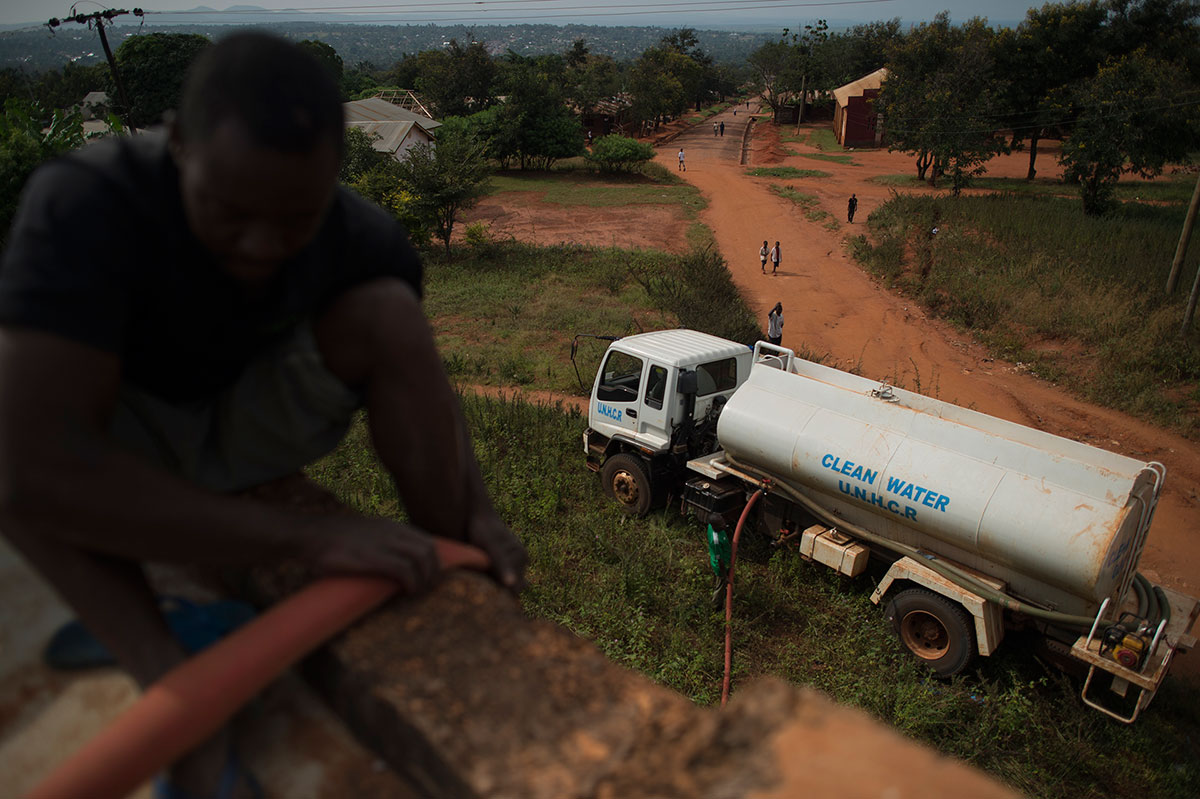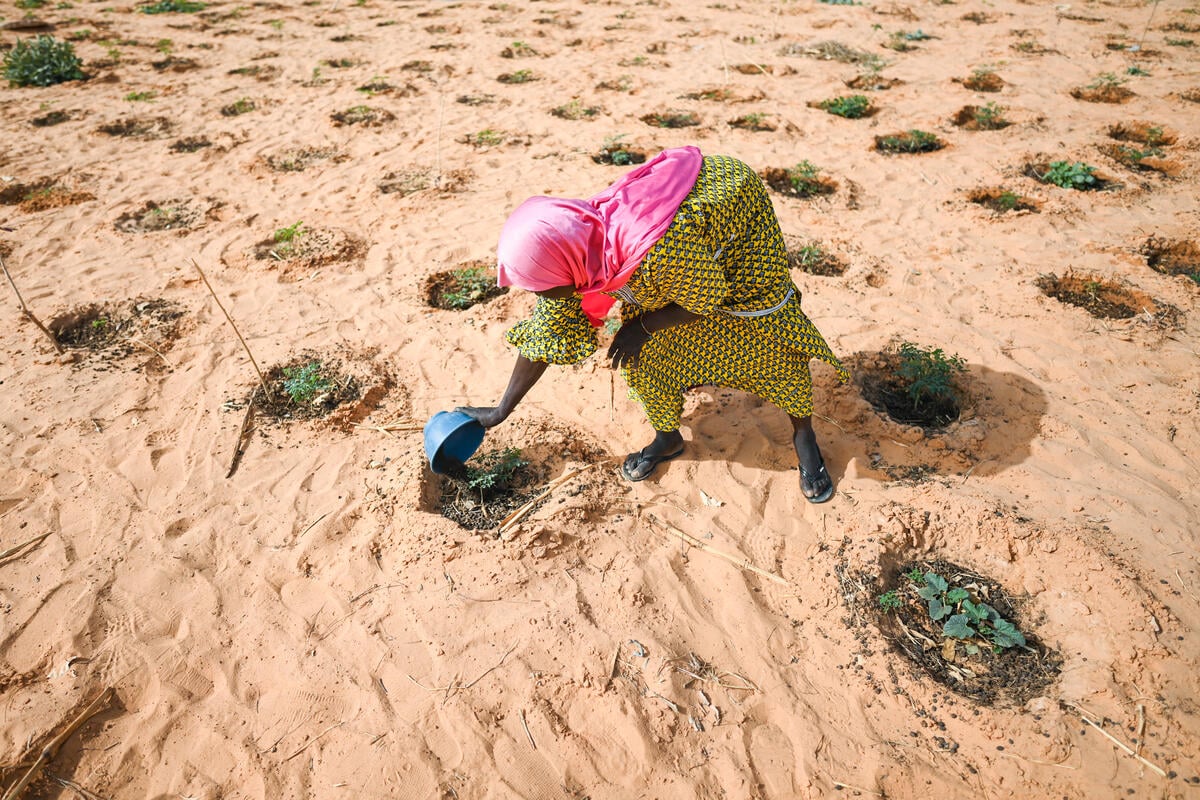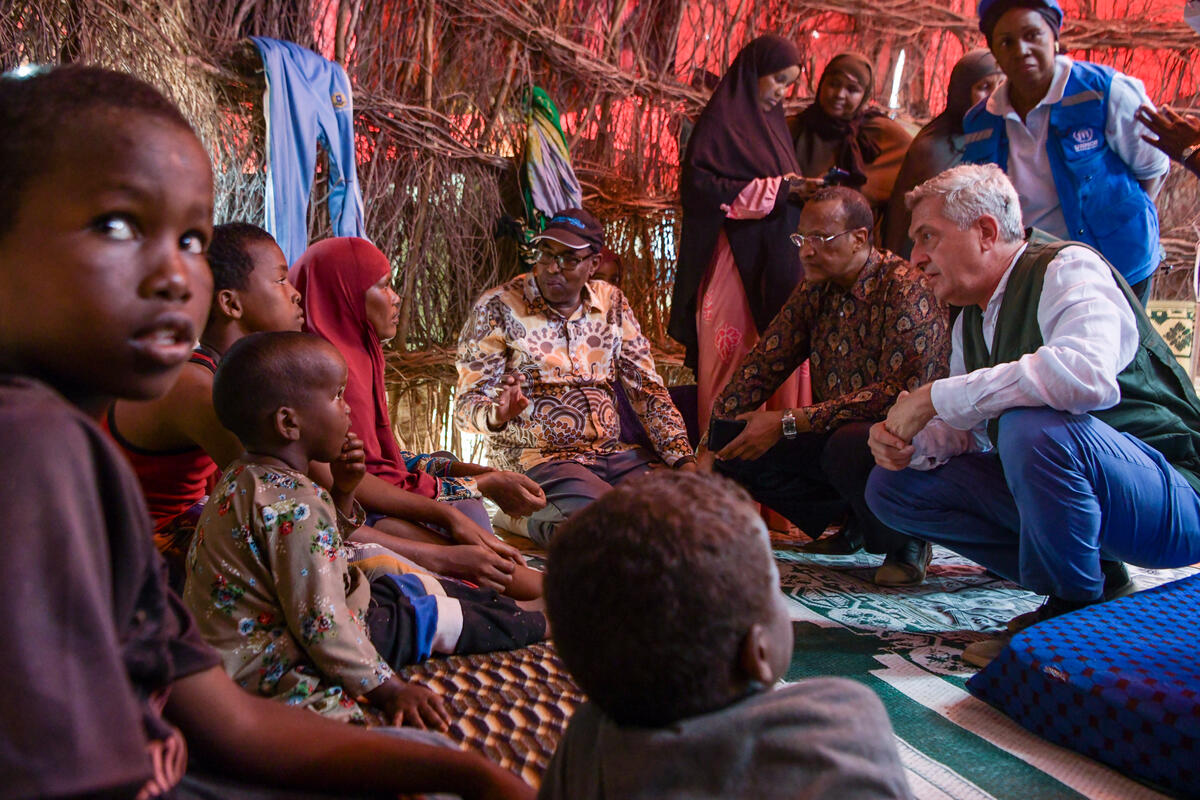Cholera Strikes Burundians Seeking Safety in Tanzania

Cholera Strikes Burundians Seeking Safety in Tanzania
It's almost 10 p.m. as the MV Liemba motors away from Tanzania's Kagunga peninsula, on the shores of Lake Tanganyika. Tonight, 18 May, the 100-year-old ferryboat carries 600 Burundian refugees in search of safety, but there are fears that some may not survive the three-hour voyage.
In a makeshift infirmary on the lower deck, health workers from UNHCR and its partners tend to more than 100 sick passengers, many of them children. Many are vomiting and most are suffering from acute, watery diarrhoea and need urgent rehydration. Those who are unable to drink or eat are given fluids intravenously.
Dr. Kahindo Maina, a senior public health officer with UNHCR, worries that the ailing passengers may have contracted cholera, a deadly bacterial infection that has claimed the lives of 29 refugees and two locals amid this month's influx from Burundi. "Our priority is to get all the refugees out of Kagunga because the situation is dire," Maina says. "We have built latrines and brought supplies to provide clean water, but the terrain and the crowded situation does not allow for good sanitary conditions there."
Just a few hours later, on 19 May, the Tanzanian Government declared a cholera epidemic, signalling the need for emergency measures to improve health and sanitation. The UN refugee agency is working closely with the Ministry of Health and other partners to reverse the outbreak by implementing several urgent measures, including increasing the supply of safe water, improving sanitation and promoting hygiene in Kagunga and two other sites hosting refugees.
More than 64,000 Burundians have fled to Tanzania this month, seeking to escape political violence and intimidation ahead of elections. Most have arrived in Kagunga peninsula, which is cut off from the rest of Tanzania by a steep mountain range. The rugged terrain makes access difficult for health workers and other humanitarians, and the peninsula, where infrastructure is limited, is now overcrowded.
Doctors first suspected cholera when many cases of acute, watery diarrhoea were reported in Kagunga. Samples were sent to a laboratory, where 17 of 22 tested positive. Now nearly 3,000 cases have been registered – many in Kagunga, but others at a stadium and regional hospital in Kigoma, as well as at Nyarugusu refugee camp. An average of 300-400 new cases are currently being reported each day. For now, the danger appears greatest in Kagunga.
"Due to the lack of proper facilities, the situation at Kagunga is really desperate," Maina says. UNHCR is therefore prioritizing the transfer of sick refugees to Kigoma, and then on to Nyarugusu camp, where there is better access to health care, water, sanitation and shelter. "Once in Kigoma and in Nyarugusu, we can treat them," he explains.
And yet the only options for transferring the refugees from Kagunga to Kigoma are by boat on Lake Tanganyika, or a four-hour trek by foot. So far, about 15,000 refugees have been taken to Kigoma, most aboard the MV Liemba.
When the ship docks in Kigoma in the early hours of 19 May, passengers are taken to the local stadium, which serves as a reception centre for refugees coming from Kagunga. All 600 make it there alive.
UNHCR, which is leading the humanitarian response to the refugee influx in Tanzania, has established three cholera treatment sites: one in Kagunga, one at the stadium in Kigoma and one at Nyarugusu refugee camp.
As implementing partners for UNHCR, both the International Rescue Committee and the Tanzania Red Cross Society have important roles to play at the treatment centres. Additionally, UNHCR is flying in urgently needed medication and supplies, and obtaining others from the Tanzanian Government, while UNICEF is bringing still more from Burundi. The arrival of doctors from Médecins Sans Frontières is now making it possible to strengthen the capacity of these facilities. Together, aid workers are providing oral rehydration solutions, soap and water purification tablets as well as expanding hand-washing facilities.
At Kigoma stadium, hundreds of people are receiving treatment for acute, watery diarrhoea.
"It's a dedicated cholera treatment centre here," says Dr. Godfrey Kahabi, who is coordinating the medical response at Kigoma stadium. "We need to isolate the patients because it spreads very quickly. We rehydrate the patients. The first dose is six hours of rehydration fluid. If the patient is still weak we continue. If the patient is better, we shift to oral rehydration."
Oldasi Ndiyokilu, 30, is at the centre with his three-year-old son, Claude, who is recovering from acute diarrhoea. He comes from Nyanza Lac in Burundi and says he walked five hours to cross the border and reach Kagunga.
"He was vomiting and had diarrhoea," Ndiyokilu says of his young son. "The doctor said that he has a problem of severe diarrhoea and needs rehydration fluid. The child's situation has now improved. When he was admitted at the hospital he was not able to see. Now he can tell through body language what he needs."
Jackline Ndiarana, 26, is at the centre with her three-and-a-half-year-old daughter, Joseline, who is also being treated for acute diarrhoea. She too is showing signs of getting better.
"I travelled with three children and my husband, and during the travel one child got sick," Ndiarana says. "She had severe diarrhoea and was also vomiting. The child's condition is much better, but I don't have other clothes to change. I have only one pair of clothes. At midnight, it is very cold."
Doctors say that the number of cholera cases may well increase in the coming weeks, but should go down again as response measures take effect.
"The priority is now to save lives," says Maina. "If we continue that momentum, I have the hope that we will save many lives – bring them to the right place and treat them."

